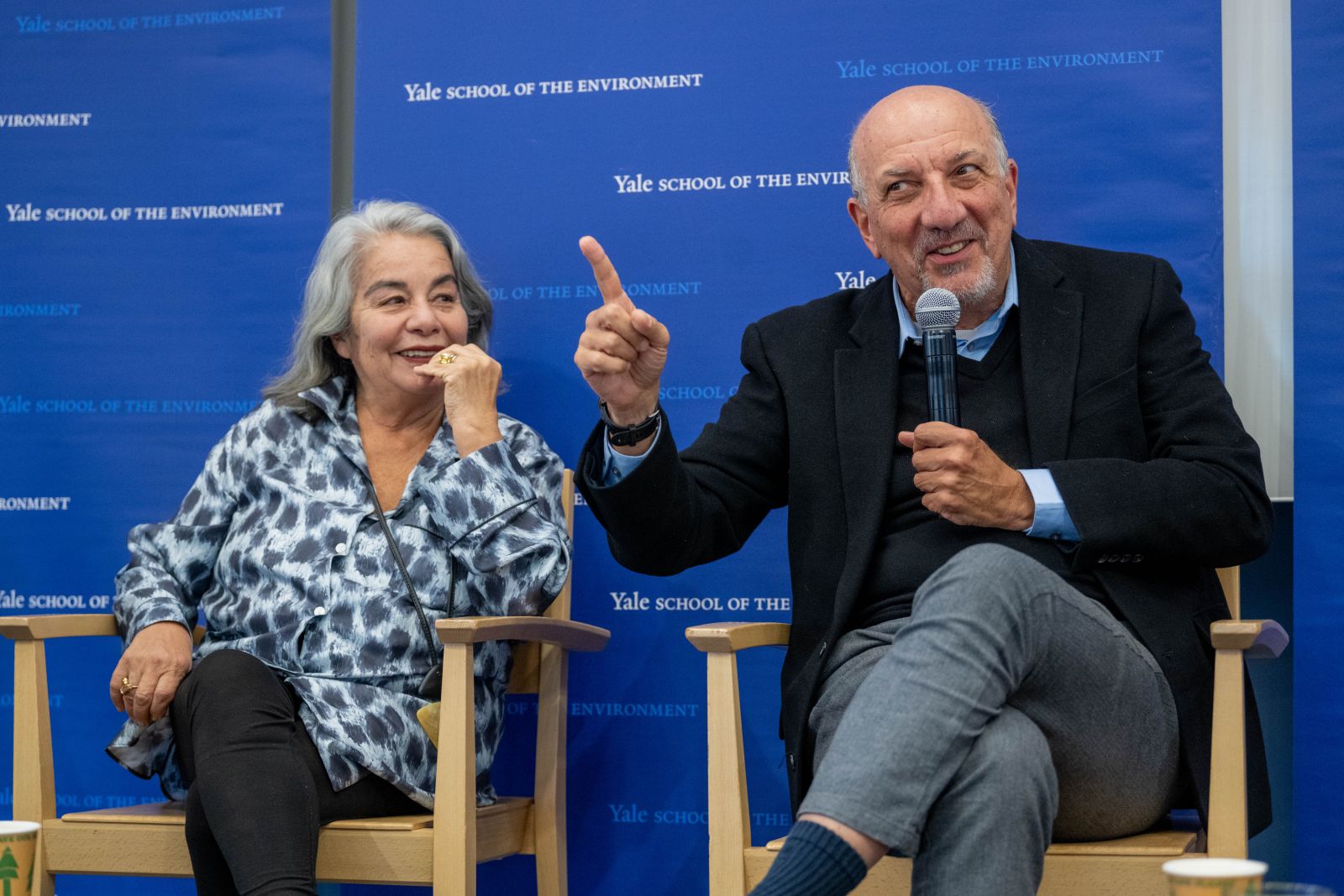
Mia Ambroiggio ’26 MEM
In the final weekend of January, Kroon Hall welcomed over 900 registrants to the 31st annual conference of the Yale Chapter of the International Society of Tropical Foresters (ISTF). The success of this conference was a result of the tireless efforts of the 2025 conference team made up entirely of Yale School of the Environment (YSE) students. The team spent countless hours preparing panel sessions, speed talks, poster sessions, and keynote speakers for the two-day event. “Building on three decades of tradition, the ISTF conference this year was an opportunity for over twenty international students, along with our national peers, to work together on preparing high-level discussions pertinent to tropical forests,” says Felipe Storch de Oliveiria ’25 MEM and Ananya Rao ’25 MESc, the conference co-chairs. The conference provided an opportunity for YSE students and the larger Yale network to connect and learn from another.
This year’s conference theme, “Governing Resilient Tropical Forest Systems,” explored how governance plays a role in climate regulation, biodiversity, and the livelihoods of communities that rely on tropical forests. The conference spanned sectors to address how concepts such as traditional ecological knowledge, land rights, incentives, and research can play a role in ensuring the success of tropical forests — and those that depend on them — now and in the future.
The throughline of the conference was collaboration. All of the panel sessions and keynote addresses highlighted concepts such as co-production of knowledge, co-management of land, and strategic engagement with communities. The need for implementation — and implementation in a timely manner — was stressed as well. While it is integral that we continue to produce thoughtful research regarding how to best manage tropical forest systems, ecosystems and communities alike are counting on scientists and practitioners to implement solutions now to prepare them for the current and future impacts of climate change and variability.
The conference hosted speakers hailing from different countries and sectors within the tropical forestry space. The keynote addresses were delivered by Carlos Manuel Rodríguez, CEO and chairperson of the Global Environmental Facility; Rhett Ayers Butler, founder and CEO of Mongabay; Santiago Gowland, CEO of the Rainforest Alliance; and Emma Torres, vice president of Americas, United Nations Sustainable Development Solutions Network (SDSN). This range of expertise provided a holistic view into the state of tropical forest governance, as well as an opportunity for YSE students to see the multitude of ways they can engage with tropical forest systems in their careers. At the final keynote speaker panel, conference co-chair Storch de Oliveira posed the question “what advice do you have to pass onto the future leaders of the environmental field?” in honor of YSE celebrating 125 years of environmental leadership. The answer among the panelists felt unanimous: pursue work within the environment with a balance of passion and rationality.

Speakers Emma Torres and Garo Batmanian sharing wisdom during a panel on leadership in forest governance on February 1, 2025. Photo: Cloe Poisson
A balance of passion and rationality was the foundation of the student organized conference, as the student team collaborated to secure funding and guest speakers, and iron out event logistics all while, well, being full time students. A lot of the student team simultaneously felt extremely connected to the cause. “As several of us were born, or have lived and worked in the tropics, we felt that the issues we discussed during [the conference] were very close to our lives and the lives of the populations in the global south,” Storch de Oliveira and Rao reflect. “In a time that climate change has intensified fires, floods, and droughts, it is ever more important to convene experts and practitioners to propose tangible solutions.”




